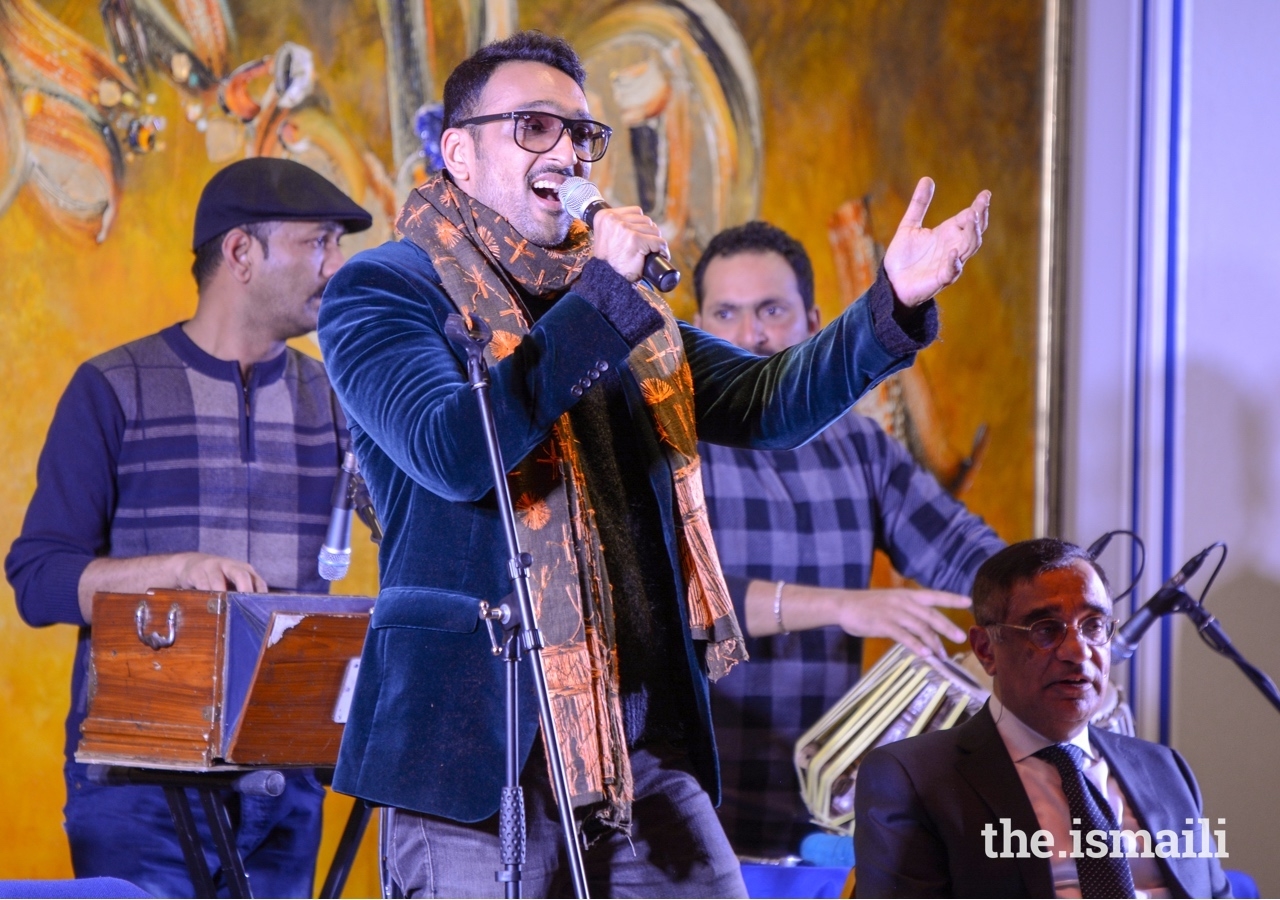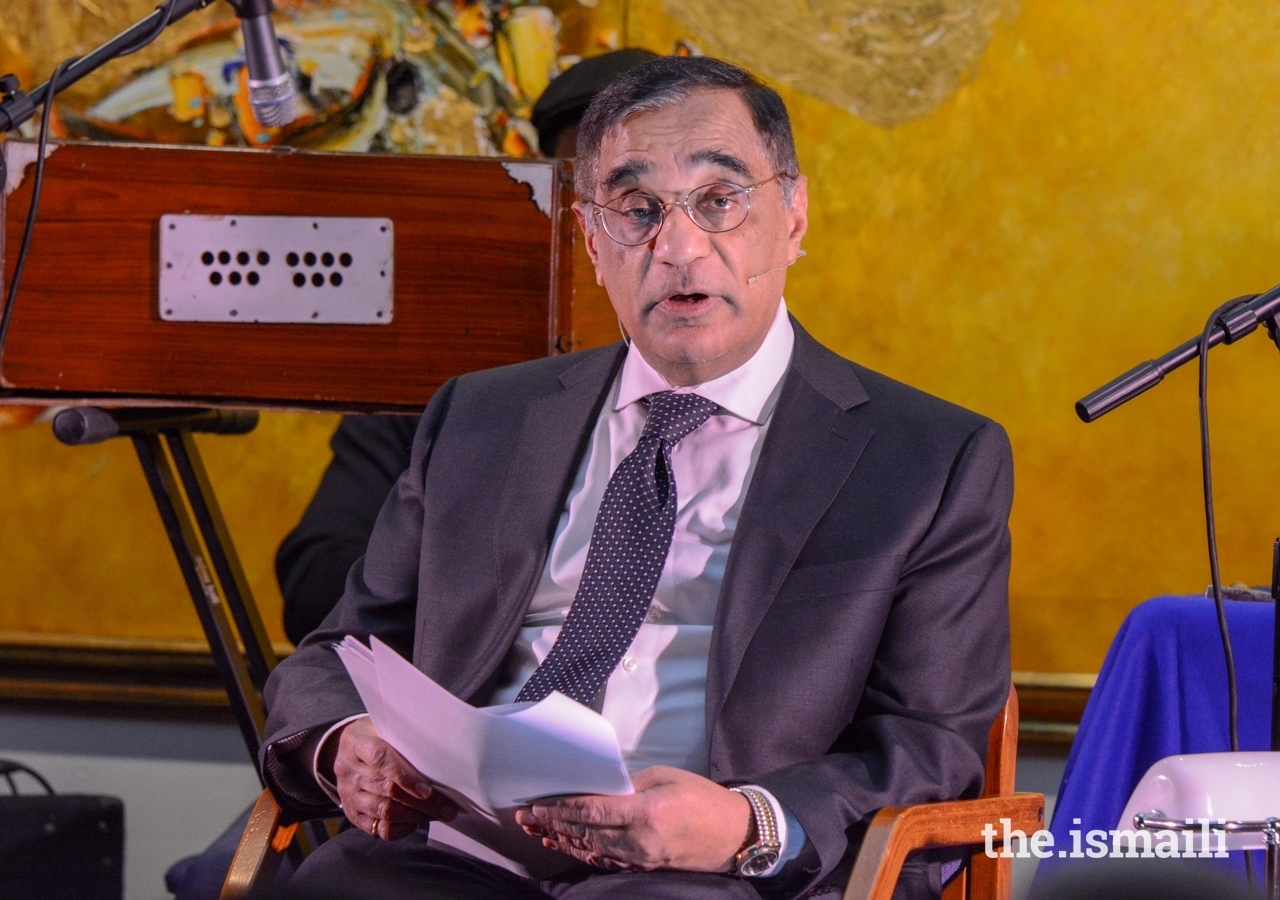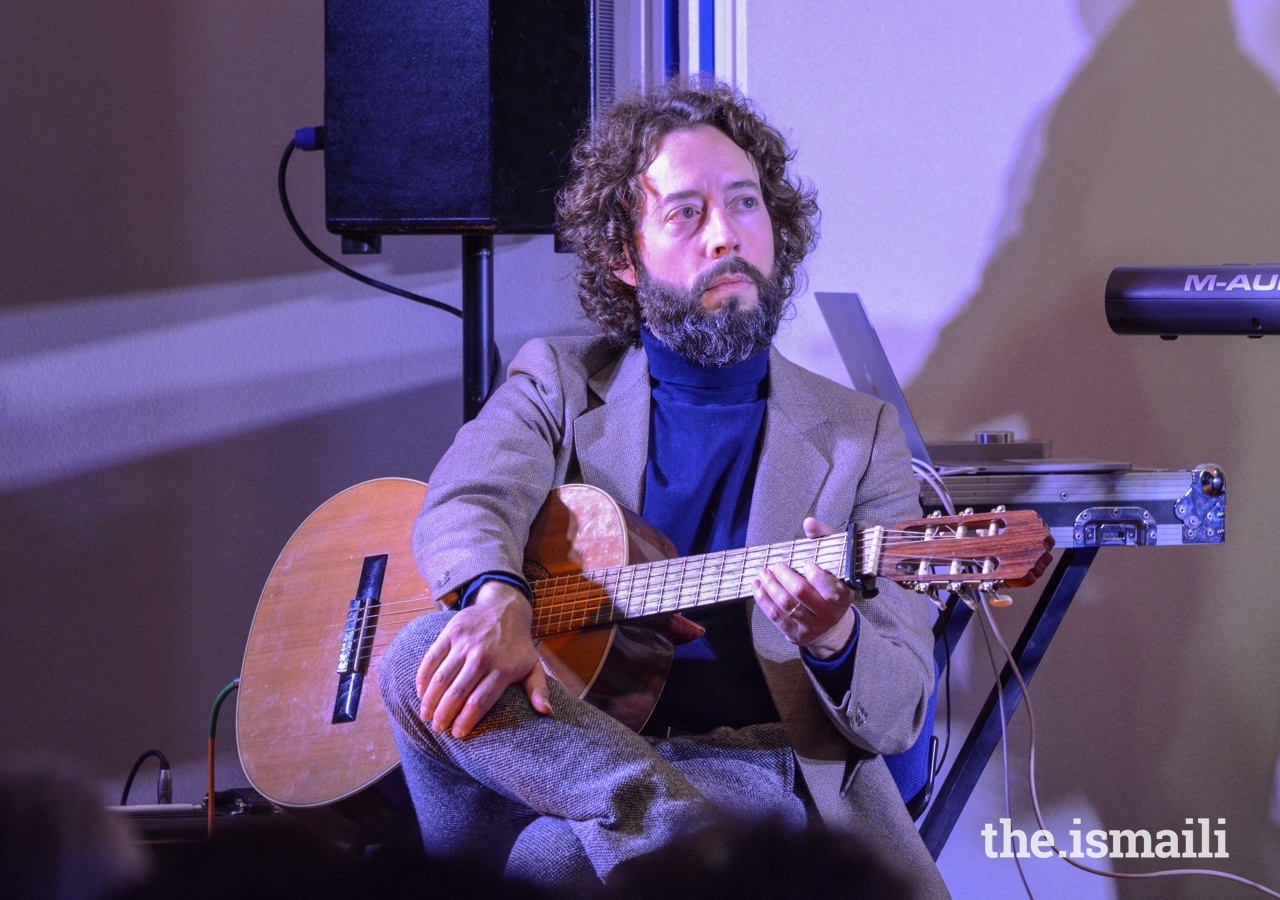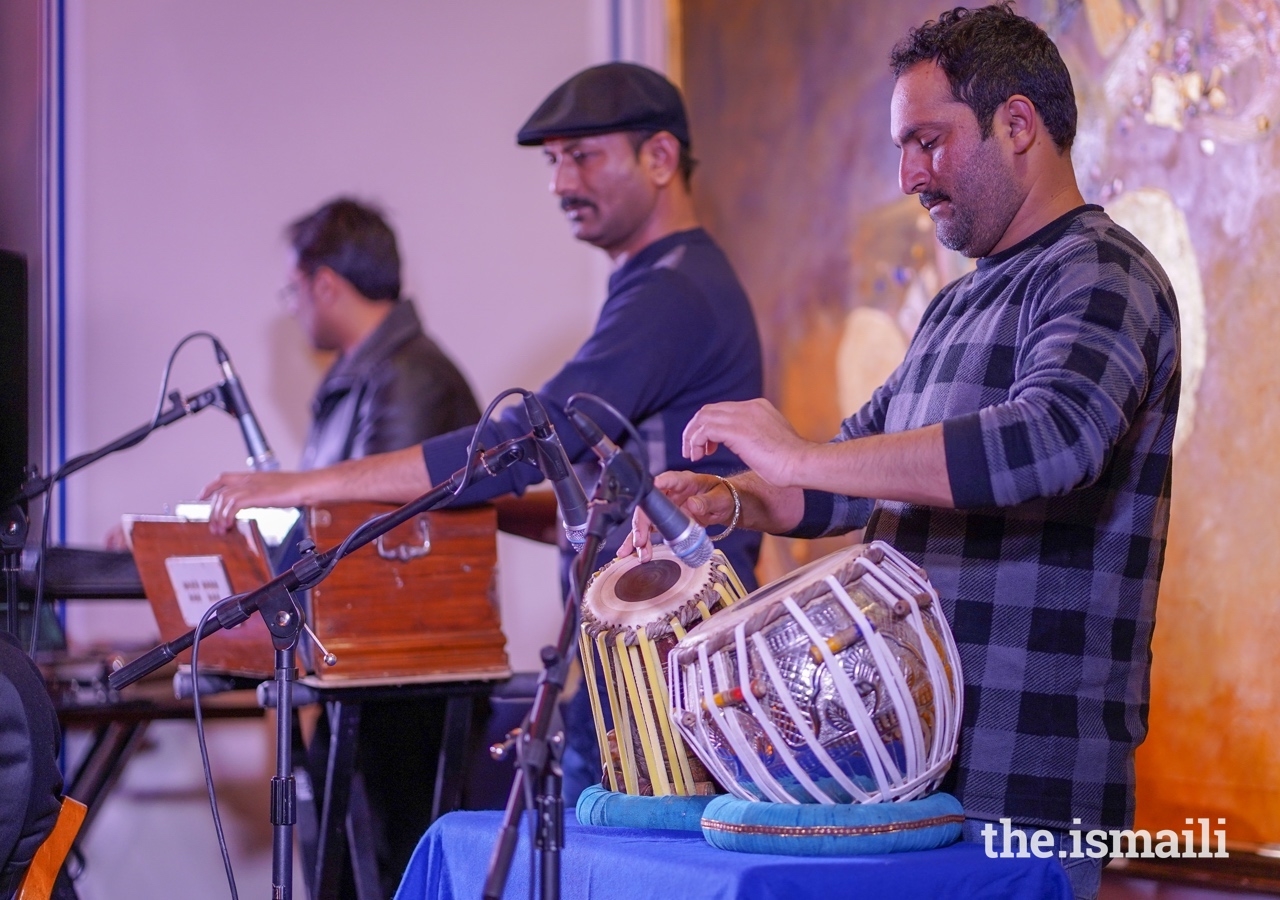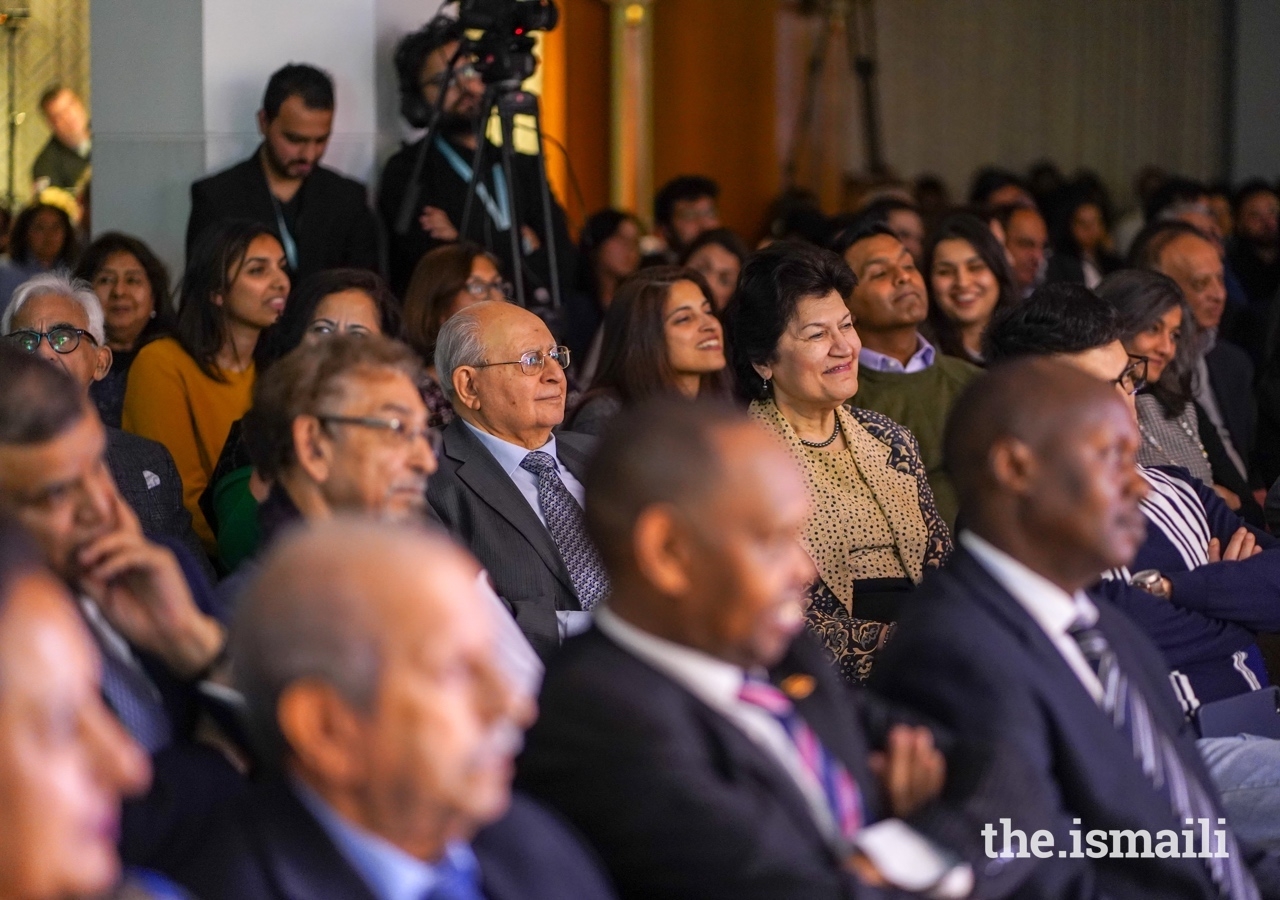The songs and stories of the Middle East and South Asia are infused with sensations, fragrances, tastes, and colours; the depth of which were conveyed by Harvard Professor Ali Asani, and Pakistani singer and author Ali Sethi, in a unique format at the Ismaili Centre London.
Among other areas, Professor Asani’s work includes a focus on the relationship between religion, literature, and the arts in Muslim societies, and the role of arts as a bridge between civilisations. Ali Sethi — taught by Professor Asani during his undergraduate studies — is known for his acclaimed novel The Wish Maker, and made his singing debut on the popular music show Coke Studio.
Professor Asani and Ali Sethi were joined on stage by a band of musicians which included Noah Georgeson, a guitar player and Grammy-winning producer from California. Their ensemble weaved together a selection of well-known qawwali, original compositions, poems, and stories from a variety of cultural traditions, languages, and regions within South Asia and the Middle East. In doing so, they led the audience on a magical journey of the senses, brimming with life, emotion, and imagination.
Describing the legacy of mystical poets, thinkers, and artists throughout history, Professor Asani said, “These poets extoll the transformative powers of ishq, a multifaceted term, interpreted over the centuries as passion, devotion, ardor, commitment, longing, or yearning. For these poets, ishq, or love, is a primordial link that connects the divine to all of creation. This link, often referred to as Misaq-e Ishq, the Covenant of Love, is based on mystical interpretations of the Quranic verse 7:171.”
“This centuries old poetic tradition, deeply rooted in traditions of South Asian Muslim spirituality, today has come to serve as a kind of food for the soul.”
The event opened with a rendition of Khwaja Mere Khwaja, a song paying tribute to Moinuddin Chisti, one of the most venerated Sufi saints of the Indian subcontinent, and revered by many, both during his life and thereafter, famously including the Mughal emperor Akbar.
Poetry and music have historically played a vital role in shaping expressions of religion in Muslim cultures around the world. Both genres have served not merely as entertainment, but as the principal means of transmitting philosophical and spiritual knowledge and reinforcing social, ethical and moral values. Poets and musicians have provided models of exemplary leadership, whether by bringing listeners closer to God, sustaining cultural memory through epic tales, or strengthening the bonds of community through festivity and celebration.
Through the course of the evening, the performers brought to life the words of Sufi saints, mystics, and poets spanning over a thousand years, including notable figures such as Nizamuddin Auliya, Amir Khusrow, Siraj Aurangabadi, and Faiz Ahmad Faiz. The various pieces were performed by Ali Sethi and the musicians, while Professor Asani explained the historic and literary context in the spaces between. This unique format facilitated a connection between past and present, and brought into focus the contrasting themes of joy and pain, love and loss, and fear and hope.
Aleeza Mitha, who served as a volunteer at the event said, “It was wonderful to welcome such a diverse range of people to the Ismaili centre, both from within the Jamat and our friends from the wider community.”
“I found the performance to be enlightening and inspiring. The warm and genuine relationship between Ali Sethi and Professor Asani was clearly evident, which made it all the more personal and a very moving experience. An unforgettable journey through poetry and music!”
For the evening’s finale, the ensemble performed the ever-popular Dama Dam Mast Qalandar, a song originating from a poem written over 600 years ago, modified by Bulleh Shah in the 18th century, and which is among the most recognised folk compositions in parts of India, Pakistan, and Iran.
As the rhythmic sounds of the beating tabla, melodious harmonium, colourful keyboard, and soulful guitar filled the hall, an enraptured audience showed their appreciation with a standing ovation as the performance came to a close, before slowly filing out of the Ismaili Centre, back into the crisp London air.

